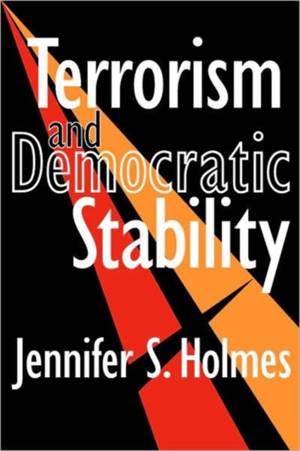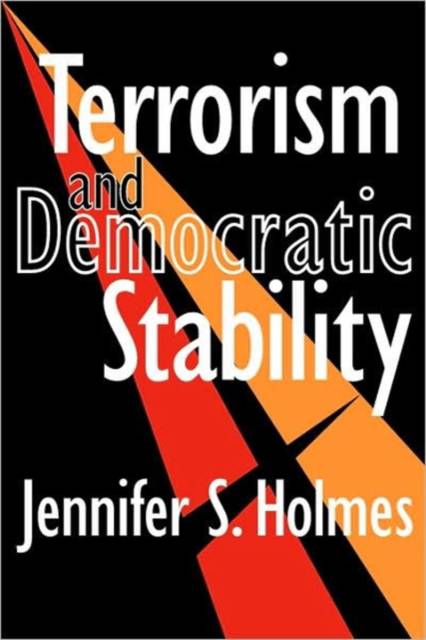
- Retrait gratuit dans votre magasin Club
- 7.000.000 titres dans notre catalogue
- Payer en toute sécurité
- Toujours un magasin près de chez vous
- Retrait gratuit dans votre magasin Club
- 7.000.0000 titres dans notre catalogue
- Payer en toute sécurité
- Toujours un magasin près de chez vous
Description
Can terrorism and state violence cause democratic break- downs? Although the origins of violence have been studied, only rarely are its consequences. And even when the consequences of violence are studied, its effects are usually limited to consideration of preexisting conflict that originally spawned the violence. In Terrorism and Democratic Stability, Jennifer S. Holmes claims that to understand the consequences of violence on democratic stability, terrorism and state responses to terrorism must be studied together.Holmes examines the effects of terrorism and state repression on democratic stability in Uruguay, Peru, and Spain. The result is a detailed empirical study set in these locations, placed within an overall theoretical framework. In Uruguay in 1973, the military closed the national assembly and instituted over a decade of authoritarian rule. In spite of seventy years of prior democracy, Uruguayans did not protest. In Peru in April 1992, Peruvian president Alberto Fujimori dissolved the congress and the judiciary. Eighty percent of Peruvians approved of his self-coup. In Spain, the troubled democracy survived an attempted coup in February 1981. Large demonstrations broke out in major cities in favor of democracy. More than three-quarters of Spaniards rejected the coup and almost half said they would act to defend democracy. Why did Uruguayans and Peruvians withhold support for their democracies? Why did the Spaniards defend theirs? This study, which begins conceptually and then moves on to comparative empirical analysis, adopts an innovative approach, identifying a new concept of citizen support as a key factor in the consequences of terrorism and repression on democratic stability. The study of Spain is set within a European Union context that provides important lessons for other EU countries.This book will be of interest to scholars and students of democratic systems, terrorism, and the philosophy of science.
Spécifications
Parties prenantes
- Auteur(s) :
- Editeur:
Contenu
- Nombre de pages :
- 256
- Langue:
- Anglais
- Collection :
Caractéristiques
- EAN:
- 9781412805667
- Date de parution :
- 03-01-06
- Format:
- Livre broché
- Format numérique:
- Trade paperback (VS)
- Dimensions :
- 168 mm x 230 mm
- Poids :
- 426 g

Les avis
Nous publions uniquement les avis qui respectent les conditions requises. Consultez nos conditions pour les avis.






